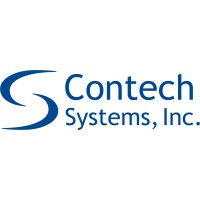

Contech Systems Inc.
InterOp BSA
⭐ - Featured Role | Apply direct with Data Freelance Hub
This role is for an Interoperability Systems Analyst (BSA) on a contract-to-hire basis, requiring 8+ years of healthcare data exchange experience. Pay rate is unspecified. Candidates must have FHIR expertise, Agile experience, and strong analytical skills. Hybrid work model available.
🌎 - Country
United States
💱 - Currency
$ USD
-
💰 - Day rate
640
-
🗓️ - Date
November 19, 2025
🕒 - Duration
Unknown
-
🏝️ - Location
Hybrid
-
📄 - Contract
Unknown
-
🔒 - Security
Unknown
-
📍 - Location detailed
Newark, NJ
-
🧠 - Skills detailed
#Data Management #Requirements Gathering #Data Normalization #Scala #Data Quality #POSTMAN #Data Lineage #Strategy #Computer Science #Documentation #Compliance #Data Governance #JSON (JavaScript Object Notation) #Snowflake #Cloud #FHIR (Fast Healthcare Interoperability Resources) #Monitoring #Databricks #Data Framework #UAT (User Acceptance Testing) #Agile #CMS (Content Management System) #Normalization #Data Mapping #AWS (Amazon Web Services) #Data Integration #Data Profiling #Azure #Data Strategy #Metadata
Role description
Interoperability Systems Analyst (FHIR / Healthcare Data Exchange)
Type: Contract-to-Hire
Location: 2 days consecutively per week onsite. Flexibility may be available for exceptional candidates.
Position Overview
We are seeking an experienced Interoperability Systems Analyst (InterOp Analyst) with a strong background in FHIR-based data exchange, healthcare interoperability, and payer or regulatory integration initiatives.
This role will serve as a key liaison between business and technical teams—translating complex interoperability and clinical data requirements into actionable technical specifications. The successful candidate will demonstrate deep knowledge of FHIR, HL7, CCDA, and other interoperability standards, along with the ability to perform hands-on data profiling and analysis across multiple healthcare data domains.
The position is part of a growing enterprise Data Strategy initiative focused on building scalable, governed, and interoperable healthcare data platforms.Key Responsibilities
Requirements Gathering & Analysis
• Collaborate with business, product, and engineering teams to define interoperability requirements supporting regulatory and payer-to-payer data exchange initiatives.
• Analyze and document functional and technical requirements for FHIR-based data exchange, CMS mandates, and other interoperability use cases.
• Develop comprehensive use cases, process maps, and data flow diagrams to guide implementation and validation efforts.
• Translate business requirements into technical specifications, including mappings to FHIR resources and healthcare data structures.
Data Profiling & Quality Validation
• Conduct data profiling and analysis across clinical and claims data sources to assess data completeness, accuracy, and conformance.
• Define and document data quality, validation, and governance rules in collaboration with data stewards and architects.
• Support the implementation of data quality monitoring frameworks and report on key metrics across interoperability domains.
FHIR / Interoperability Standards
• Analyze and define FHIR resource mappings (Patient, Encounter, Observation, Coverage, DocumentReference, Condition, etc.).
• Ensure that FHIR specifications, profiles, and implementation guides are correctly interpreted and integrated into system design.
• Validate data exchange formats and payloads (FHIR, JSON, HL7, CCDA, CSV) across inbound and outbound interfaces.
• Support testing, troubleshooting, and refinement of interoperability workflows.
Cross-Functional Collaboration
• Partner with Data Governance, Architecture, and Delivery teams to ensure alignment with enterprise data standards and compliance frameworks.
• Act as a bridge between technical teams and business stakeholders to clarify requirements, address data issues, and support user acceptance testing (UAT).
• Participate in design sessions, architecture reviews, and sprint planning meetings to ensure alignment with delivery timelines and scope.
Documentation & Reporting
• Develop and maintain clear, comprehensive documentation, including BRDs, FRDs, data mapping specifications, and interface control documents (ICDs).
• Maintain traceability between requirements, design, and test cases.
• Track requirement status, dependencies, and risks across multiple concurrent projects.
Qualifications
• Bachelor’s degree in Computer Science, Information Systems, or a related discipline (Master’s preferred).
• Minimum 8 years of experience as a Business Systems Analyst or Interoperability Analyst in a healthcare, payer, or data exchange environment.
• Strong understanding of FHIR (Fast Healthcare Interoperability Resources) standards and implementation specifications.
• Experience with interoperability mandates (e.g., CMS, ONC, Blue Association) and healthcare data standards (HL7, CCDA, LOINC, SNOMED, ICD, CPT).
• Proven ability to perform data profiling, analyze source-to-target mappings, and define data quality rules.
• Excellent analytical, communication, and documentation skills; able to bridge business and technical discussions.
• Experience working in Agile or hybrid delivery environments.
Preferred Skills
• Experience using FHIR testing and validation tools (e.g., Postman, Touchstone, Inferno).
• Familiarity with cloud data platforms (Databricks, AWS, Snowflake, Azure).
• Exposure to clinical data integration, data normalization, and data lineage tracking.
• Working knowledge of data governance, metadata management, and master data frameworks.
Additional Details
• Hybrid work model; remote flexibility available for qualified candidates.
• Weekly deliverables and milestone reviews are part of standard practice.
• The role is delivery- and data-focused, not management-oriented.
Interoperability Systems Analyst (FHIR / Healthcare Data Exchange)
Type: Contract-to-Hire
Location: 2 days consecutively per week onsite. Flexibility may be available for exceptional candidates.
Position Overview
We are seeking an experienced Interoperability Systems Analyst (InterOp Analyst) with a strong background in FHIR-based data exchange, healthcare interoperability, and payer or regulatory integration initiatives.
This role will serve as a key liaison between business and technical teams—translating complex interoperability and clinical data requirements into actionable technical specifications. The successful candidate will demonstrate deep knowledge of FHIR, HL7, CCDA, and other interoperability standards, along with the ability to perform hands-on data profiling and analysis across multiple healthcare data domains.
The position is part of a growing enterprise Data Strategy initiative focused on building scalable, governed, and interoperable healthcare data platforms.Key Responsibilities
Requirements Gathering & Analysis
• Collaborate with business, product, and engineering teams to define interoperability requirements supporting regulatory and payer-to-payer data exchange initiatives.
• Analyze and document functional and technical requirements for FHIR-based data exchange, CMS mandates, and other interoperability use cases.
• Develop comprehensive use cases, process maps, and data flow diagrams to guide implementation and validation efforts.
• Translate business requirements into technical specifications, including mappings to FHIR resources and healthcare data structures.
Data Profiling & Quality Validation
• Conduct data profiling and analysis across clinical and claims data sources to assess data completeness, accuracy, and conformance.
• Define and document data quality, validation, and governance rules in collaboration with data stewards and architects.
• Support the implementation of data quality monitoring frameworks and report on key metrics across interoperability domains.
FHIR / Interoperability Standards
• Analyze and define FHIR resource mappings (Patient, Encounter, Observation, Coverage, DocumentReference, Condition, etc.).
• Ensure that FHIR specifications, profiles, and implementation guides are correctly interpreted and integrated into system design.
• Validate data exchange formats and payloads (FHIR, JSON, HL7, CCDA, CSV) across inbound and outbound interfaces.
• Support testing, troubleshooting, and refinement of interoperability workflows.
Cross-Functional Collaboration
• Partner with Data Governance, Architecture, and Delivery teams to ensure alignment with enterprise data standards and compliance frameworks.
• Act as a bridge between technical teams and business stakeholders to clarify requirements, address data issues, and support user acceptance testing (UAT).
• Participate in design sessions, architecture reviews, and sprint planning meetings to ensure alignment with delivery timelines and scope.
Documentation & Reporting
• Develop and maintain clear, comprehensive documentation, including BRDs, FRDs, data mapping specifications, and interface control documents (ICDs).
• Maintain traceability between requirements, design, and test cases.
• Track requirement status, dependencies, and risks across multiple concurrent projects.
Qualifications
• Bachelor’s degree in Computer Science, Information Systems, or a related discipline (Master’s preferred).
• Minimum 8 years of experience as a Business Systems Analyst or Interoperability Analyst in a healthcare, payer, or data exchange environment.
• Strong understanding of FHIR (Fast Healthcare Interoperability Resources) standards and implementation specifications.
• Experience with interoperability mandates (e.g., CMS, ONC, Blue Association) and healthcare data standards (HL7, CCDA, LOINC, SNOMED, ICD, CPT).
• Proven ability to perform data profiling, analyze source-to-target mappings, and define data quality rules.
• Excellent analytical, communication, and documentation skills; able to bridge business and technical discussions.
• Experience working in Agile or hybrid delivery environments.
Preferred Skills
• Experience using FHIR testing and validation tools (e.g., Postman, Touchstone, Inferno).
• Familiarity with cloud data platforms (Databricks, AWS, Snowflake, Azure).
• Exposure to clinical data integration, data normalization, and data lineage tracking.
• Working knowledge of data governance, metadata management, and master data frameworks.
Additional Details
• Hybrid work model; remote flexibility available for qualified candidates.
• Weekly deliverables and milestone reviews are part of standard practice.
• The role is delivery- and data-focused, not management-oriented.






